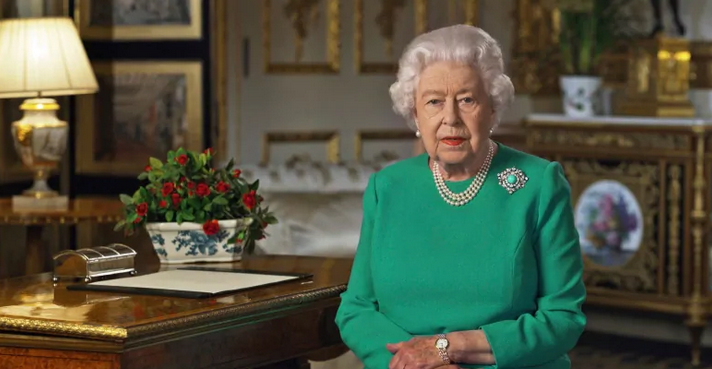Destiny’s Child: The Queen as Survivor
Whatever we’re living through now, chances are Queen Elizabeth has seen worse. Which makes her perspective priceless.

Lisa Van Dusen/For The Hill Times
April 8, 2020
The 21st century, so far, has been the era of unprecedented, avoidable catastrophes. It dawned with suicide bombers mothballing the banality of evil by committing mass murder on live television, welcomed its second decade with a contagion of corruption that collapsed the global financial system, and greets its third with a viral contagion that threatens genocidal mortality, has depopulated the streets of major metropolises, and could bring the world’s major economies to their knees.
When a crisis is defined by its previously unthinkable quality—by change so radically transformative that we are simply incapable of imagining it until we’ve witnessed it—perspective can be hard to muster. How do you process, much less cope with, a reality that confounds the two components of recognition: recollection and familiarity?
By universalizing the experience through its most basic common denominators, we can relate to the experience of people who’ve lived through similar impacts, if not similar events. In the case of 9/11, the financial cataclysm, and the COVID-19 pandemic, those denominators were and are shock, horror, fear, uncertainty, sadness, helplessness, and moral outrage. Perspective can mean the difference between being defeated by those emotions, individually or collectively, or absorbing and prevailing over them to reach understanding, empathy, resolve, resiliency, and perseverance.
One of the tests of leadership at such moments—one way to tell the voices that are part of the problem from those that are part of the solution—is the degree to which they contribute to or detract from the efficiency of that process by generating lies, confusion, division, insecurity, and weakness or truth, clarity, judgment, strength, vision, and compassion. Of all the norms we’ve been urged to consign to history, the corruption of that one is among the least convincing.
Elizabeth Alexandra Mary Windsor may be the single most potent provider of historical perspective on the planet. The Queen’s expertise in coping with the previously unthinkable dates back to her invaluable moral and morale-boosting role, while still a teenager, in the Manichaean battle between the brutality of Nazism and the future of human freedom, presided over by the man who would be her first prime minister, Winston Churchill. At 94, after 68 years as monarch alongside 14 prime ministers of the United Kingdom, 12 presidents of the United States, and 12 Canadian prime ministers, the Queen, as we’ve seen in the past year, has learned a thing or two about crisis management.
In her address to Britain and the world on April 5, the Queen was speaking as not just a head of state but also as a survivor—of war, of grief, of upheaval, of disruption, of political overreach, corruption, incompetence, stupidity, and evil. She was also speaking as the mother of a son and successor who has just proven that this virus isn’t deterred by the Royal Protection Squad and that you can recover from it. All of which gives her personal and professional perspective on this current global catastrophe a unique authority.
“While we have faced challenges before, this one is different,” she said in remarks that pointedly recalled her first wartime broadcast in 1940, with her late sister, Margaret. “This time we join with all nations across the globe in a common endeavour, using the great advances of science and our instinctive compassion to heal.”
“We should take comfort that, while we may have more still to endure, better days will return. We will be with our friends again; we will be with our families again; we will meet again,” she said, echoing the Second World War anthem by Dame Vera Lynn, at 103 another survivor of humanity’s last Homeric game of dominoes.
Lisa Van Dusen is associate editor of Policy Magazine and a columnist for The Hill Times. She was Washington bureau chief for Sun Media, international writer for Peter Jennings at ABC News, and an editor at AP in New York and UPI in Washington.
